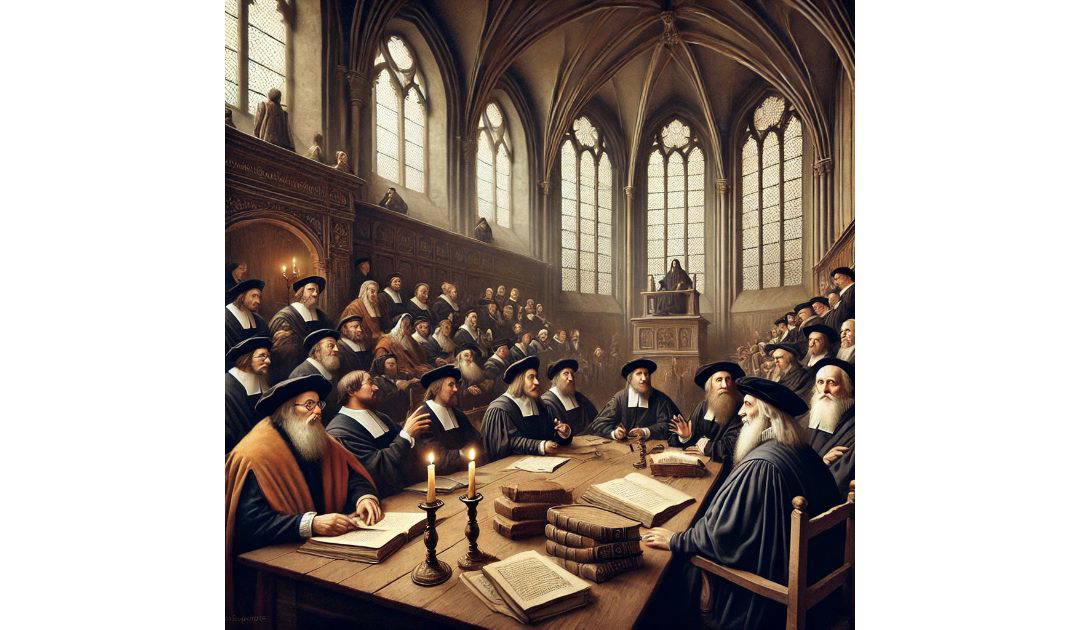On the 7th of March, 1277, the University of Paris issued the last of its “Condemnations”. The Condemnations of the University of Paris refer to a series of official censures issued by the university in the 13th and 14th centuries, targeting various philosophical, theological, and scientific ideas. These condemnations were primarily directed at teachings that were seen as conflicting with Christian doctrine, especially those influenced by Aristotelianism and Averroism (a school of thought based on the works of the Islamic philosopher Averroes). The condemnations played a significant role in shaping medieval intellectual life, reinforcing the boundaries between faith and reason.
By the 12th and 13th centuries, the works of Aristotle had been reintroduced to Western Europe through Arabic translations and commentaries by Muslim and Jewish philosophers such as Averroes (Ibn Rushd) and Maimonides. Aristotle’s philosophy, particularly in metaphysics and natural philosophy, posed challenges to traditional Christian theological interpretations. His emphasis on reason, causality, and the eternity of the world appeared to contradict Christian teachings on divine creation, miracles, and the nature of the soul.
At the same time, the University of Paris, one of the most important centres of medieval learning, became a battleground between scholastic theologians and rationalist philosophers. Some scholars, influenced by Averroism, promoted ideas that seemed to suggest a separation between faith and reason, leading to accusations of heresy.
The first major condemnation occurred in 1270, issued by Étienne Tempier, the Bishop of Paris. Tempier, acting with papal support, targeted 13 philosophical propositions, many of which were associated with radical Aristotelianism and Averroism. Among the condemned ideas were:
- The eternity of the world – Aristotle’s idea that the universe had no beginning or end contradicted the Christian belief in creation.
- The unicity of the intellect – Some Averroists argued that all human beings share a single, universal intellect, which undermined the doctrine of individual souls.
- Determinism – The notion that human actions are entirely governed by fate or necessity, challenging free will.
These condemnations signalled the university’s commitment to aligning philosophy with Christian theology. However, the debates did not end there.
A second and more extensive condemnation was issued in 1277, also led by Bishop Étienne Tempier. This time, 219 propositions were condemned, including ideas associated with Aristotle, Averroes, and even some prominent Christian scholastics. This condemnation was particularly broad, including:
- The denial of divine omnipotence – Any claim that God could not act beyond natural laws was rejected.
- The limitation of God’s power by reason – The belief that God was bound by rational necessity was seen as dangerous.
- Ideas that undermined Christian doctrine on the soul and resurrection – Claims that the soul was merely a function of the body or that resurrection was impossible were condemned.
The 1277 condemnation had significant consequences, as it created a climate of caution among scholars. It also led to the reassessment of Aristotelian philosophy, encouraging thinkers like Thomas Aquinas to find ways to reconcile faith and reason.
The tensions between reason and faith persisted, leading to further condemnations. In the early 14th century, philosophers such as John Duns Scotus and William of Ockham introduced new ideas about logic, metaphysics, and divine power. This prompted another wave of condemnations in 1316 and 1340, which focused on excessive speculation in theology.
One of the most famous later condemnations came in 1346, targeting the radical Nominalist ideas that questioned universals and divine foreknowledge. These intellectual disputes helped shape the development of scholasticism and laid the groundwork for the philosophical shifts of the Renaissance and early modern period.
The Condemnations of the University of Paris had a lasting impact on medieval thought. They reinforced the dominance of theology over philosophy, ensuring that speculative reasoning did not contradict religious doctrine. They shaped the development of Scholasticism, encouraging figures like Aquinas, Bonaventure, and Ockham to refine their approaches to faith and reason. They influenced later debates on science and philosophy, as later thinkers, including Galileo and Descartes, would face similar tensions between reason and religious authority.
While the condemnations sought to control intellectual discourse, they also stimulated philosophical inquiry, as scholars worked to balance reason with faith. This tension would continue to shape Western thought for centuries.

